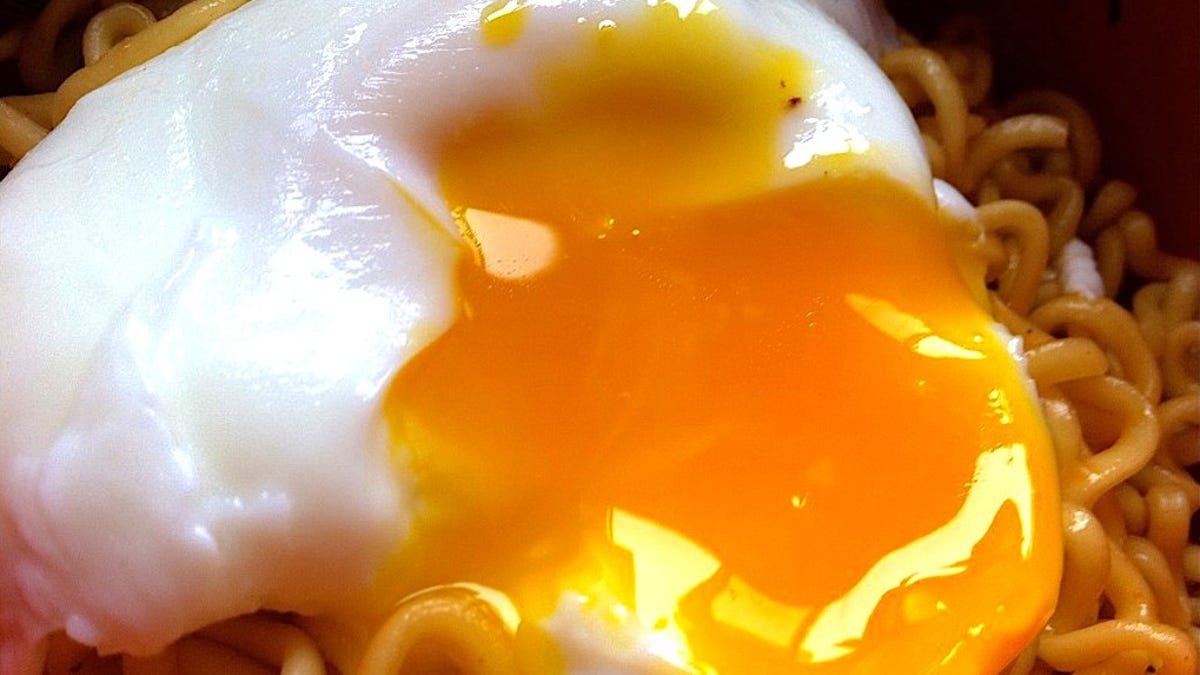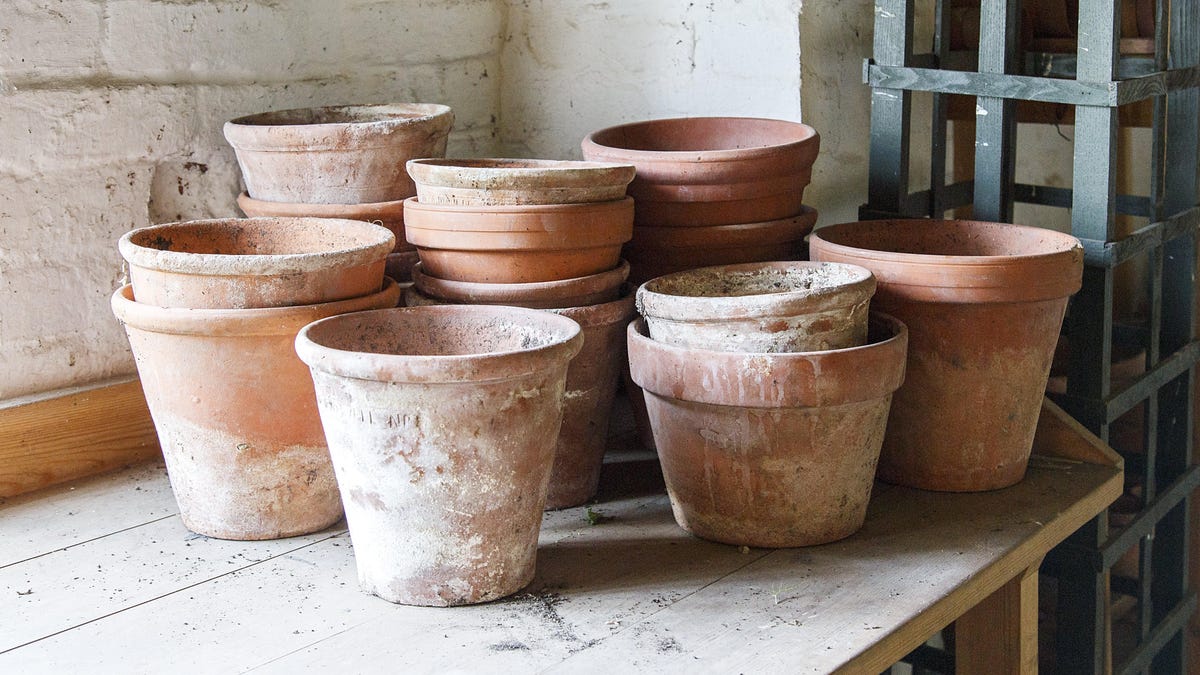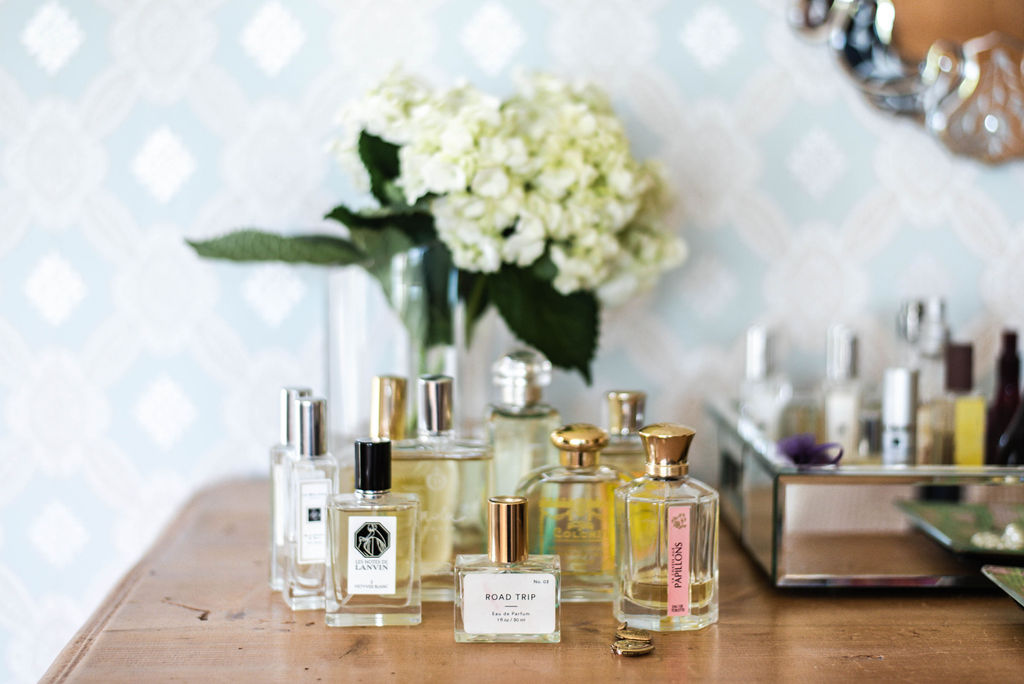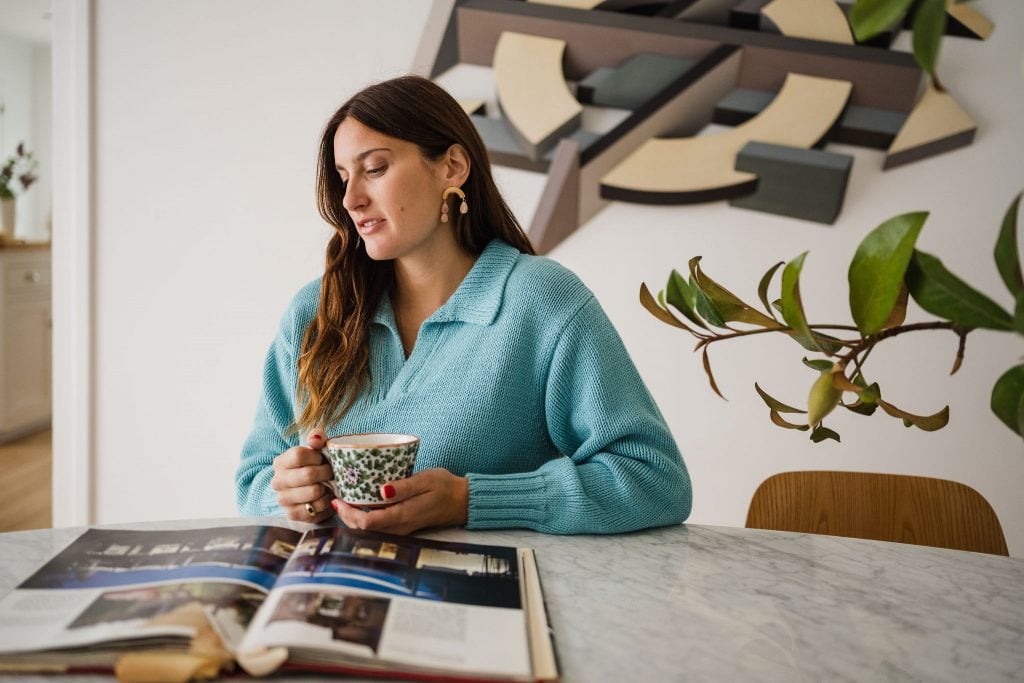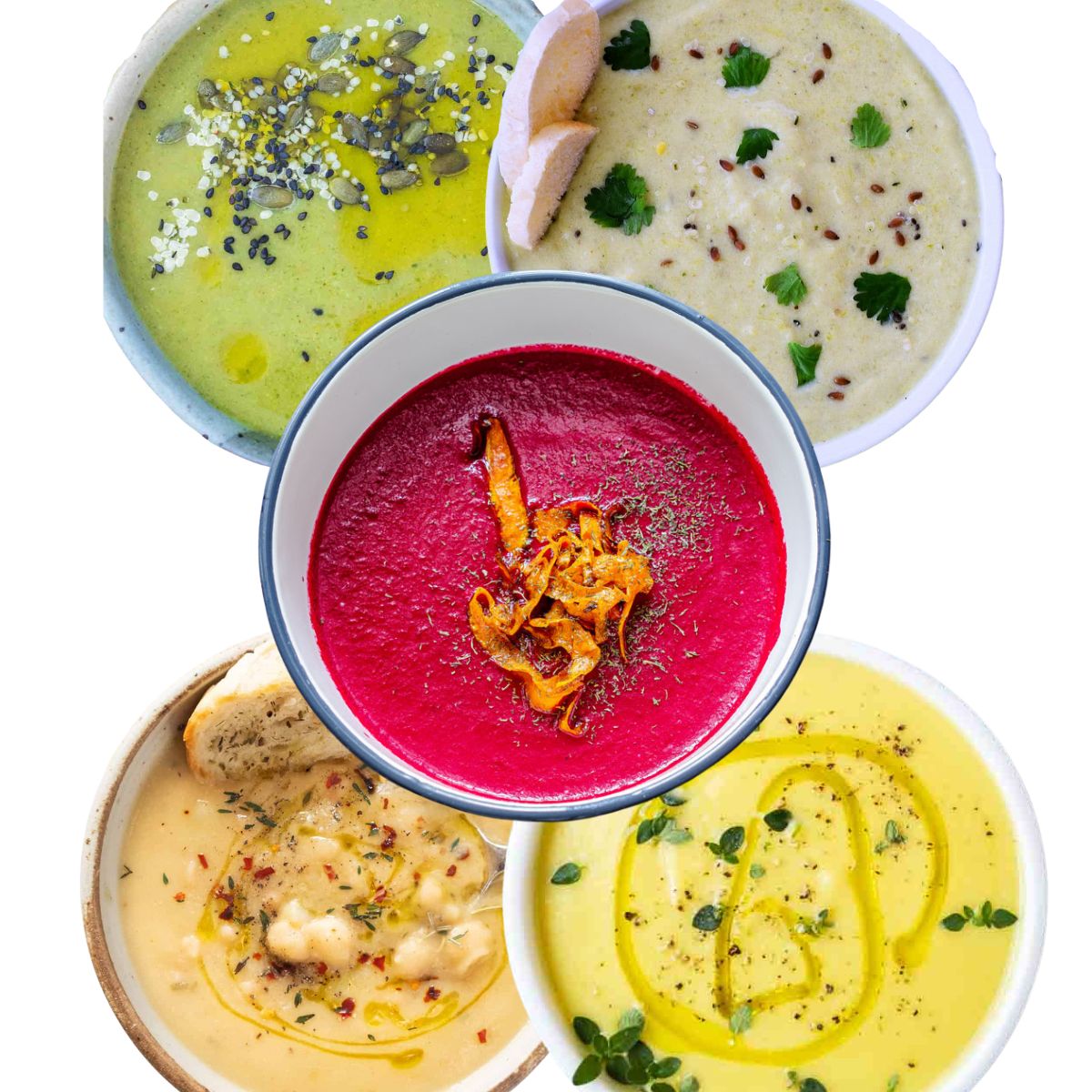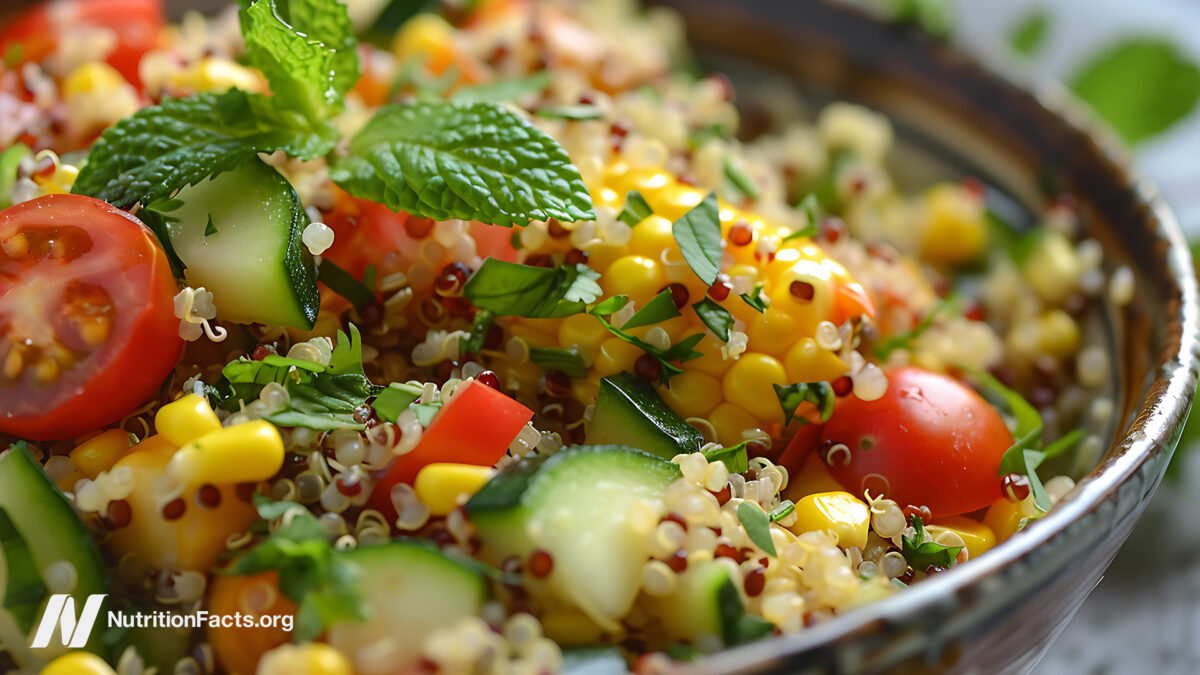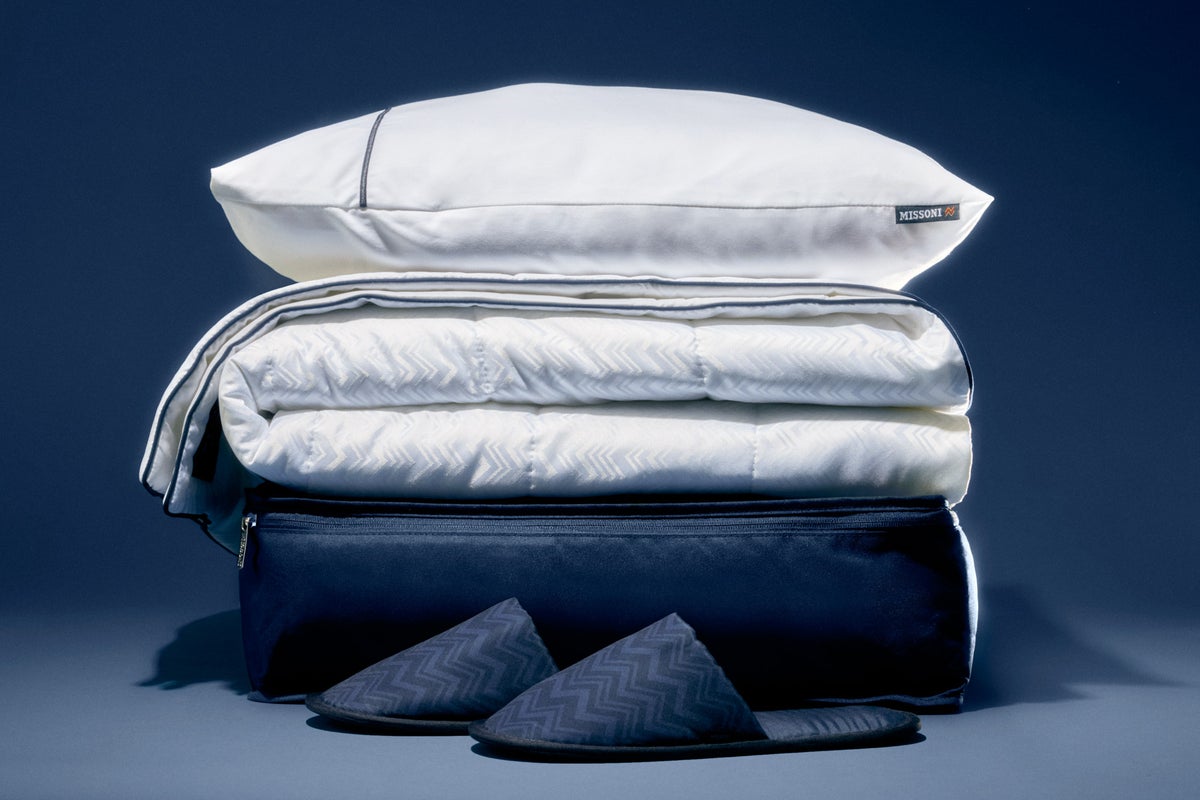Skip the Coffee Run—Here’s How to Make a Matcha Latté at Home
Jules Acree spills the tea. The post <strong>Skip the Coffee Run—Here’s How to Make a Matcha Latté at Home</strong> appeared first on Camille Styles.
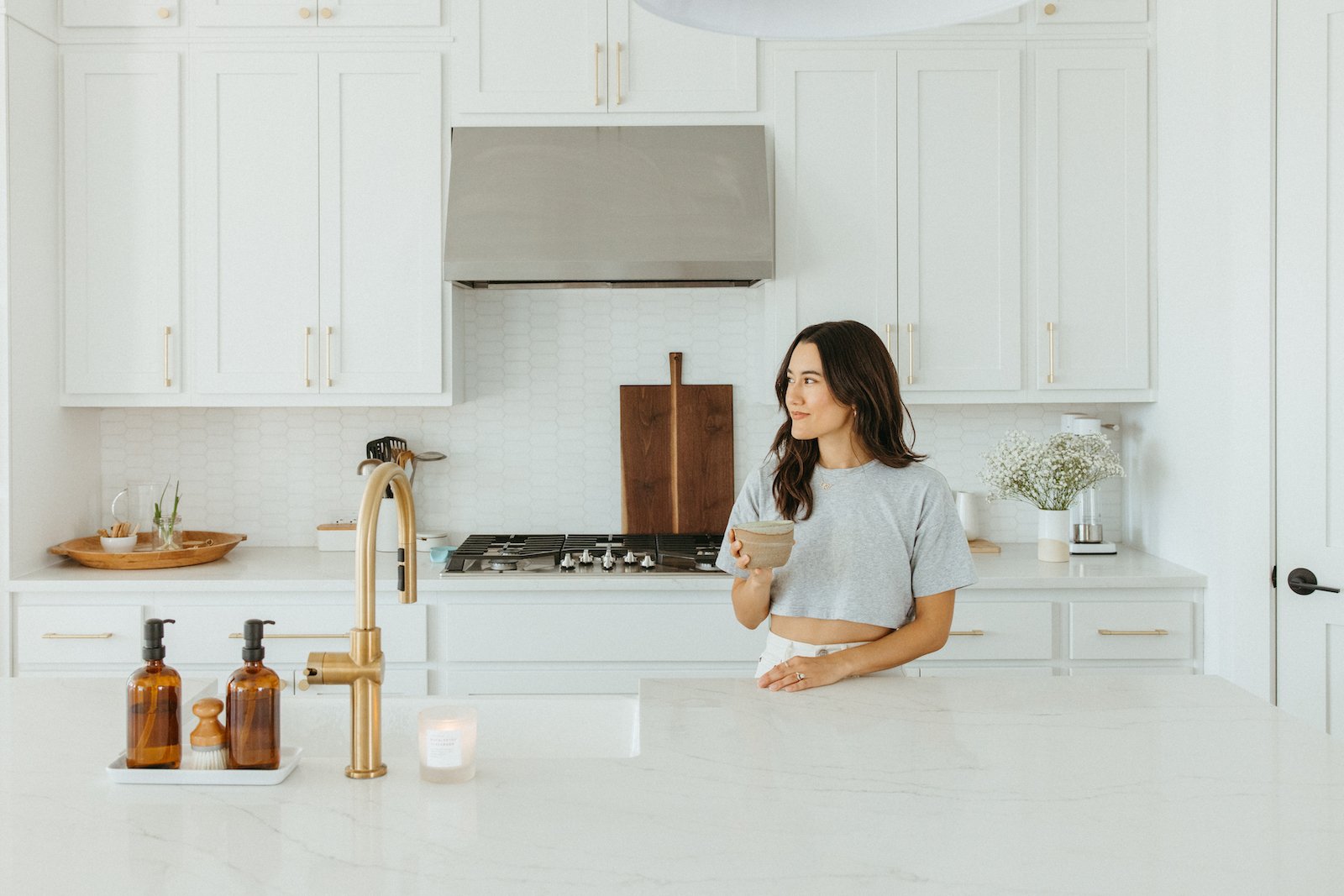
Starting each new morning with a warm drink is one of life’s simple pleasures—and it’s a ritual that’s shared by cultures around the world. Whether you’re a coffee, tea, or lemon water enthusiast, there’s something about the repetition of preparing your warm bev of choice and settling into a favorite spot to enjoy it that’s so grounding. (In fact, it’s this simple act that inspired the Ritual Mug, our first Casa Zuma product!) Matcha, a Japanese green tea powder that dates back to the 12th century, is a much-loved tradition I wanted to learn more about. I was intrigued by its reported health benefits, but had had some not-so-great matcha experiences at local coffee shops. After talking to some of my matcha-loving friends, it became clear that learning how to make a matcha latté at home is the key to fully appreciating a cup. And I knew just which friend to ask for her go-to recipe.
Jules Acree is a digital creator and matcha-loving entrepreneur. She promised that her lightly-sweet and comforting hot matcha latté is incredibly easy to make at home, so I spent a cozy afternoon in her light-filled kitchen in Austin so she could teach me her ways. Jules says that she likes to make her matcha lattés at home so she can use a ceremonial-grade matcha and control the level of sweetness. Scroll on for her simple method—she shares how to prevent clumps and get that frothy, barista-style finish.
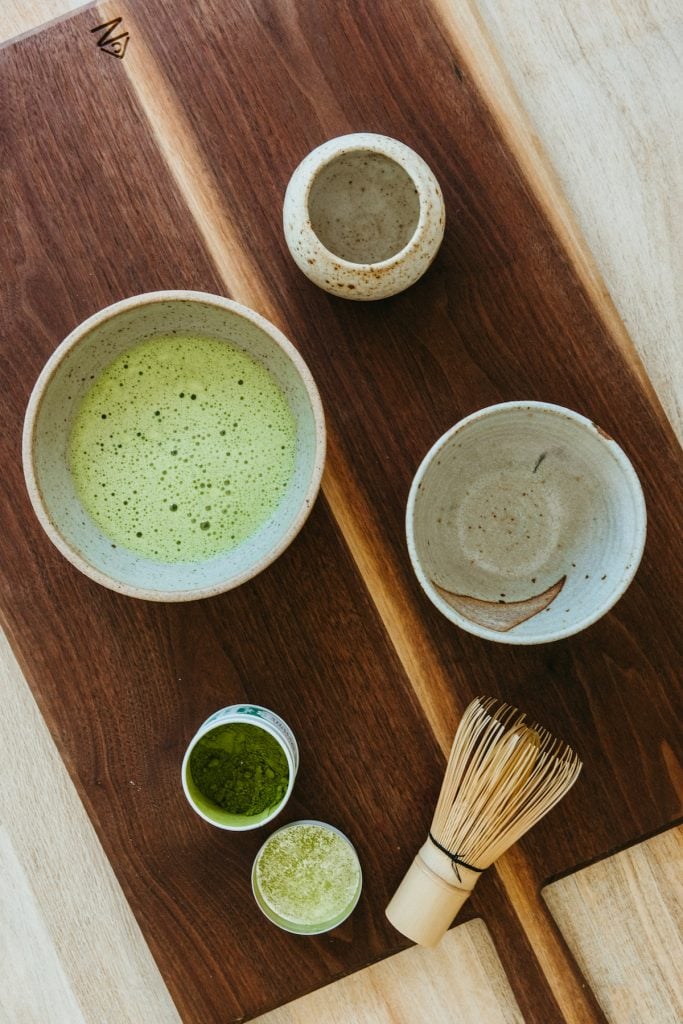
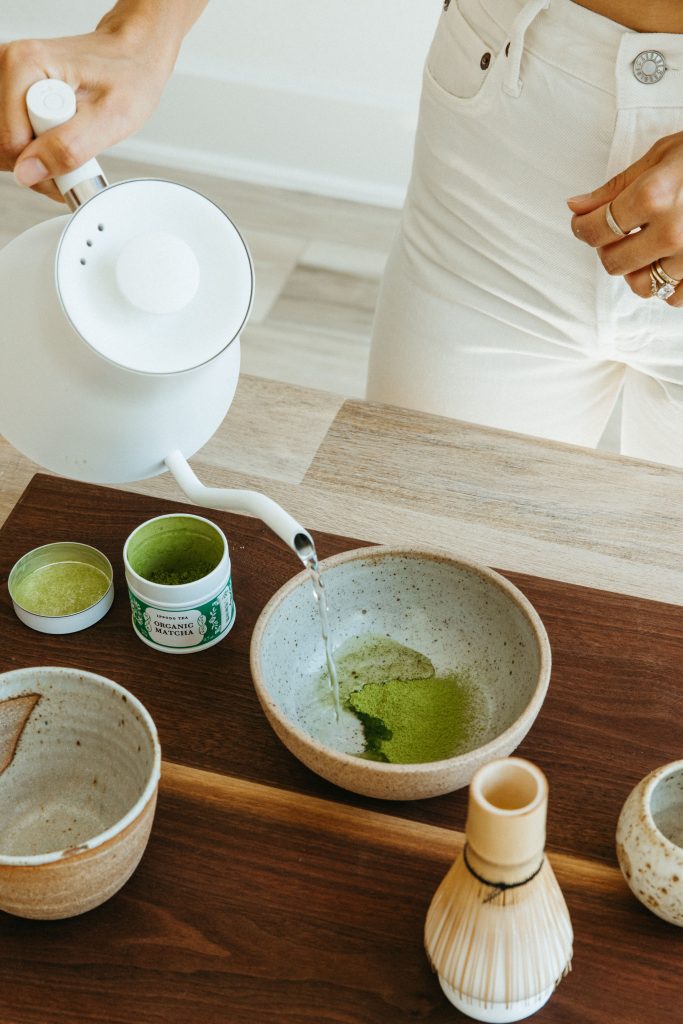
A brief history of matcha
Before learning about how to make matcha, I did a little research and found out that in the 16th century, matcha was discovered in China by a Buddhist monk, who brought it to Japan. The monk noticed that drinking matcha madre him feel more calm and alert, thereby improving his meditation sessions. As these benefits (which we now know are from matcha’s caffeine and L-theanine) became more widely known, it became the basis for Japanese Tea Ceremonies.
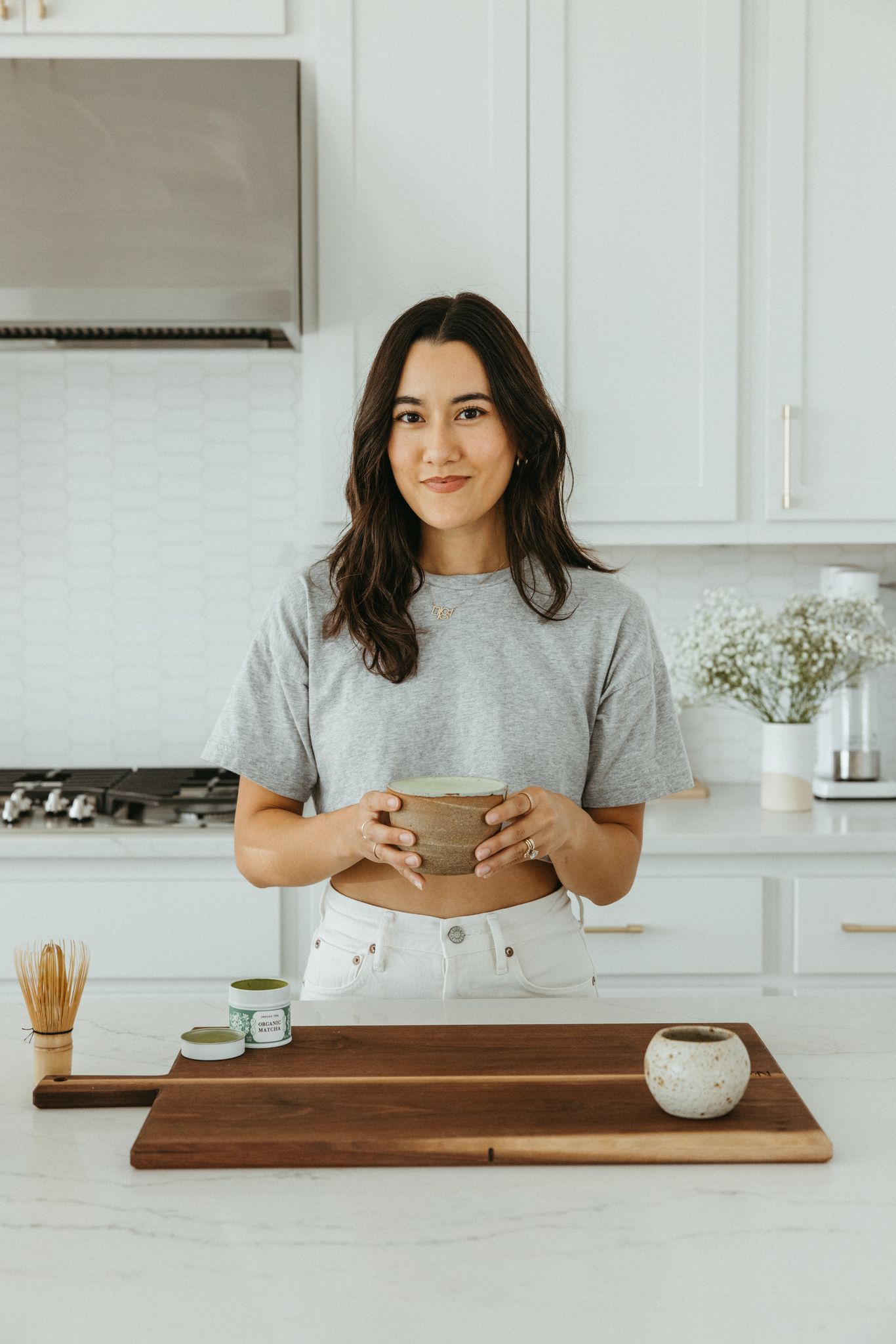
Health benefits of matcha
From Jules: Matcha is extremely high in antioxidants. It has caffeine, but because it’s paired with the amino acid l-theanine, it has a more calming effect on the mind and body than coffee. The result is a more sustained energy without the dreaded caffeine crash.
What does matcha taste like?
It depends on the quality of the matcha used, but it should have an earthy savory taste with a bit of nuttiness.
How do you make a matcha latté at home?
First, sift your matcha powder to eliminate clumps. Spoon the sifted powder into a mug, and add hot water. Quickly whisk in a zig-zag motion until frothy—about 30 seconds. Add your milk, sweetener, and salt, and whisk again.Scroll to the bottom of this post for the recipe card, and a DIY matcha video from Jules.
What type of milk works best in matcha:
Feel free to use your milk of choice—any type works great, but I prefer one that creates a nice foam in my frother. I like cashew milk and sometimes I use hazelnut rice milk… it can be paired with whatever you like best.
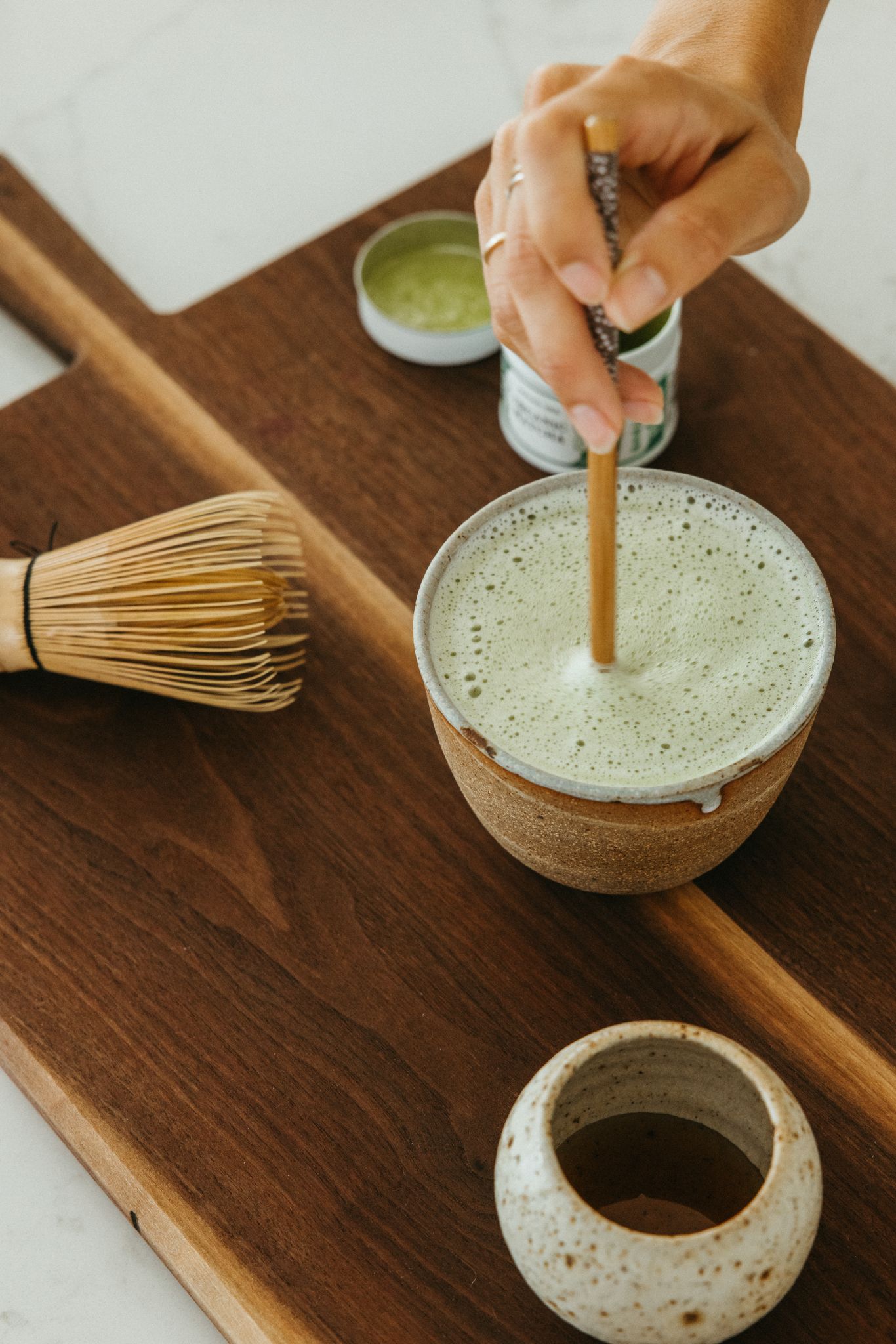
Do you add sweetener?
It depends on my mood—sometimes I add maple and a little salt.
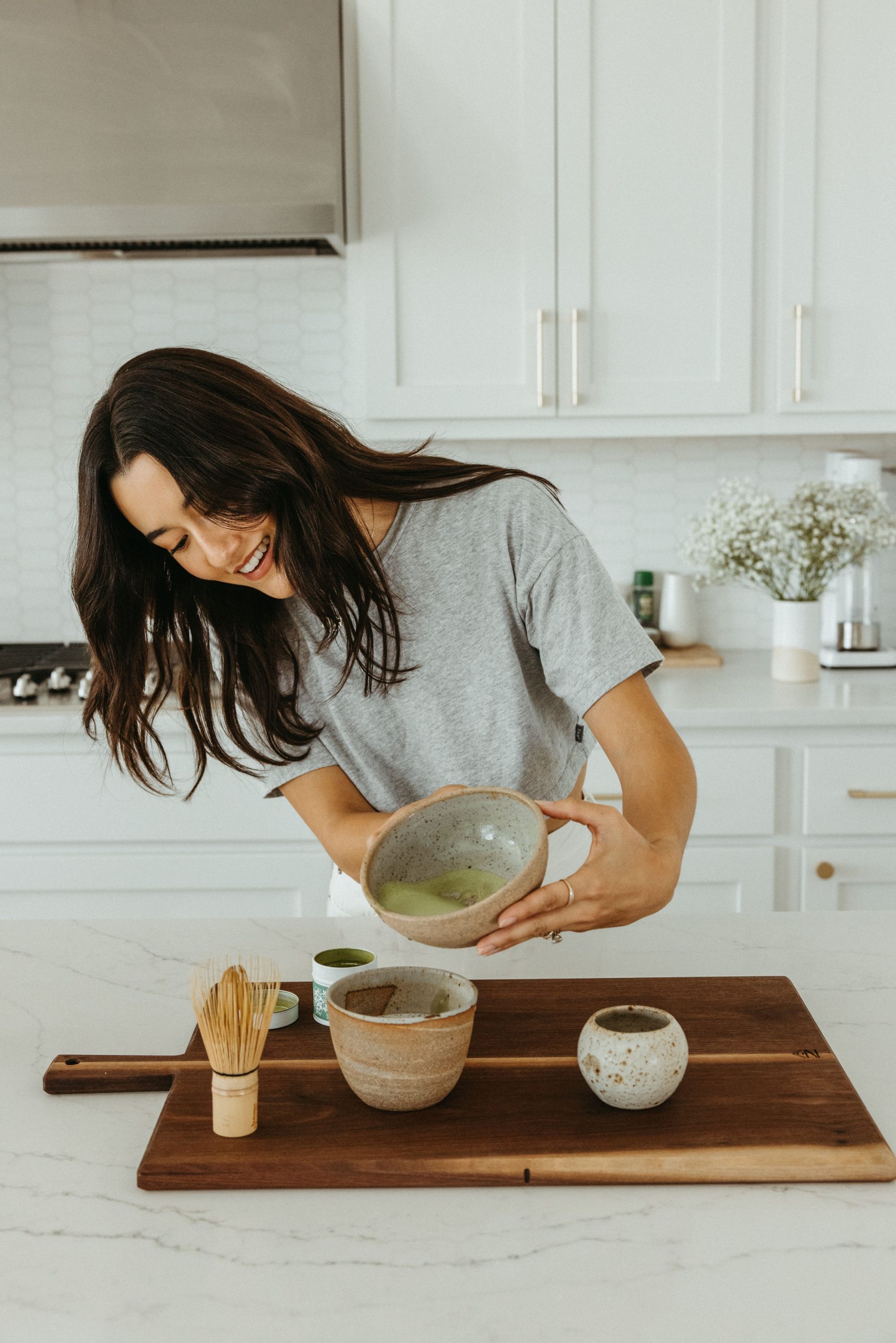
What should I look for when buying matcha powder?
I personally get mine from brands that source in Japan. Organic is not always necessary because Japan has higher standards for farming and sometimes these smaller farms can’t afford to pay for the certification.
You want a brand that tests for heavy metals since matcha leaf is grown in ground and we consume the whole leaf (matcha is green tea leaves mashed up into a fine powder). Also, matcha that isn’t bright green is not good quality, so keep an eye out for color.
Is it worth it to buy ceremonial-grade matcha?
Yes! The taste and antioxidants found in ceremonial-grade matcha make it well worth the price.
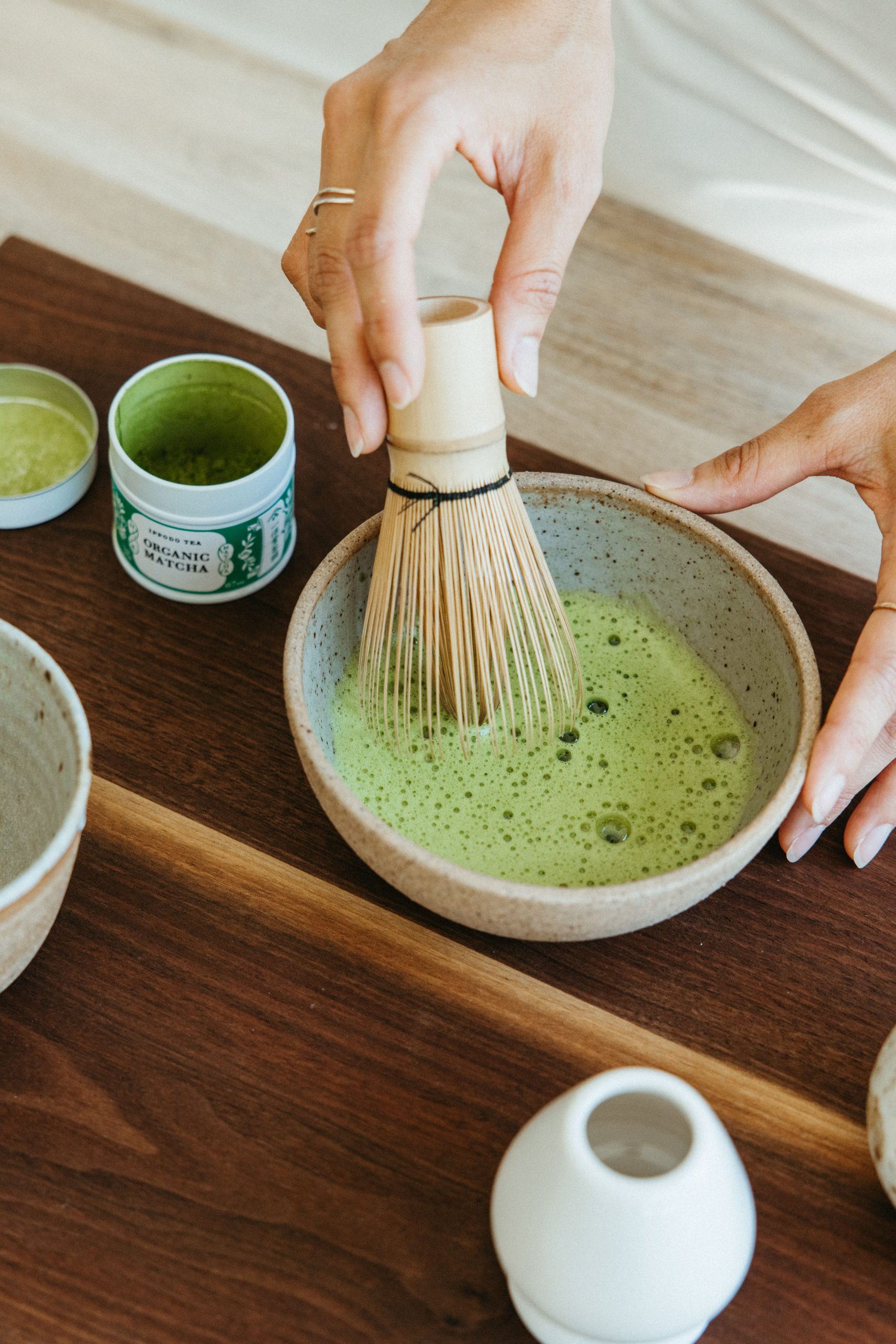
Why use a matcha whisk?
Using a matcha whisk to mix the matcha with the hot water is the best method for eliminating clumps, and it keeps us rooted in matcha’s origins—it’s an important part of the ritual.
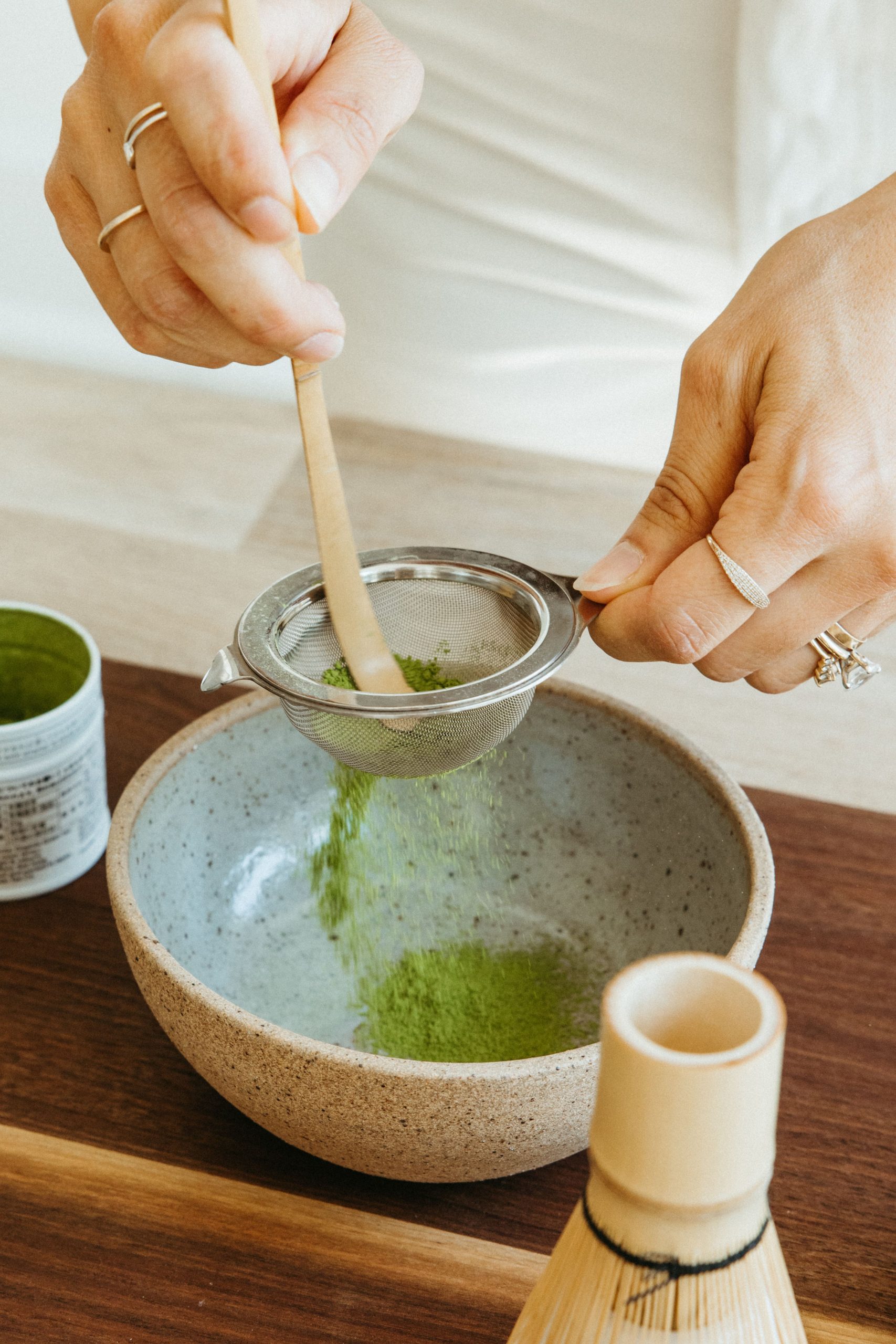
How do I make an iced matcha latté without clumps?
Sift your matcha, and then vigorously whisk it. You’ll want to whisk in a zig-zag pattern, not a circle. Your whisk will get those clumps out so you can then pour it over ice and enjoy.

 Hollif
Hollif 







